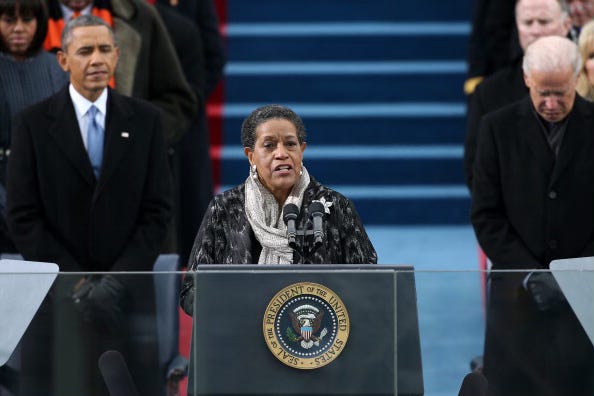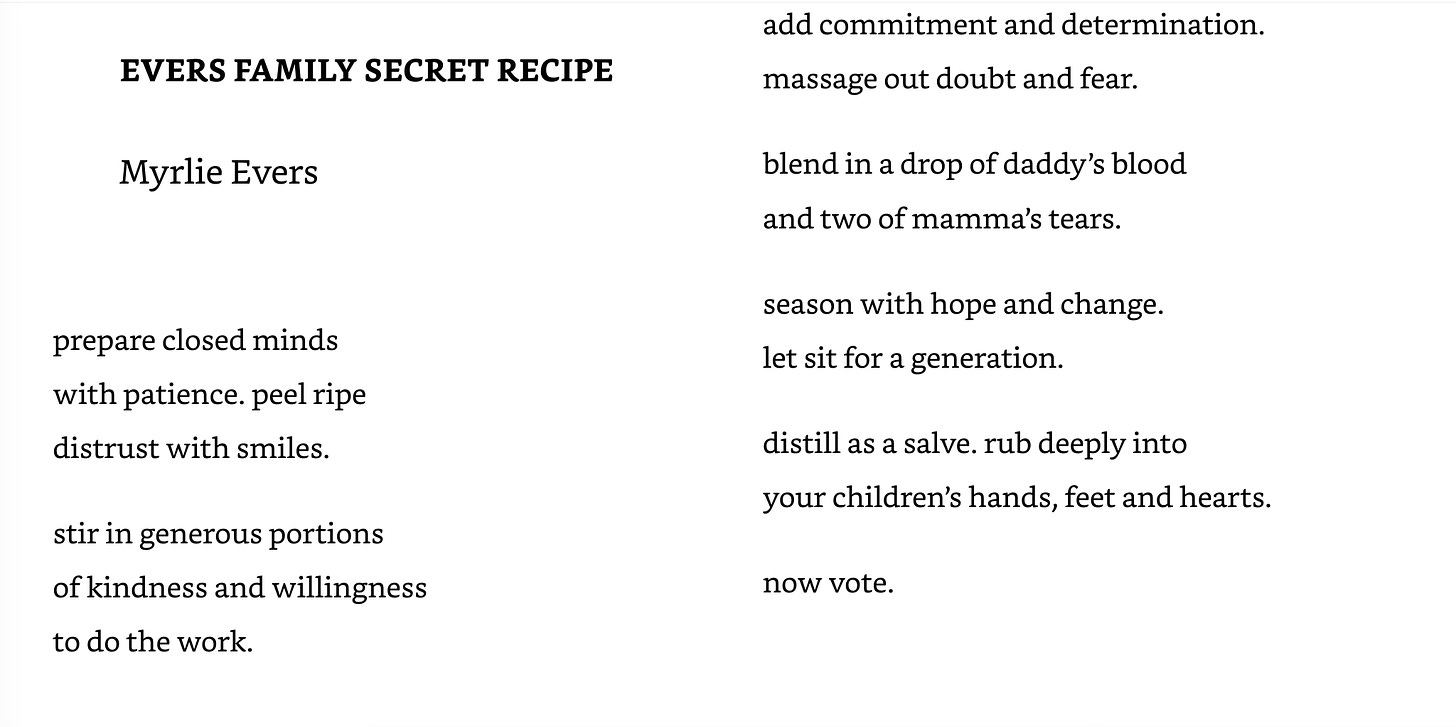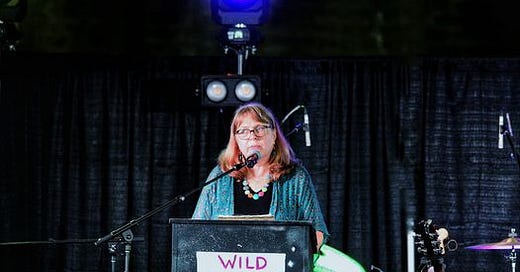

Discover more from The Cottage
Today is the Fifteenth Sunday after Pentecost.
This is also Labor Day weekend in the United States, a holiday celebrating the social and economic achievements of workers and that commemorates labor activists in helping to realize the American ideals of equality, freedom, and justice.
I’m coming home from the beach today. I asked my friend and Convocation partner, Jemar Tisby, if he’d fill in for me this weekend. Jemar is sharing an excerpt from his brand new book, The Spirit of Justice, with The Cottage.
The lectionary reading for this Sunday from the Epistle of James fits perfectly with both Labor Day and Jemar’s excerpt: Be doers of the word, and not merely hearers.
Last week, our guest John Philip Newell wrote about the sense of exile spirituality — “We are longing for an expanded vision of the Universe, a reawakened love affair with Earth, and a deepened sense of spiritual presence in every moment and encounter of life.” That sacred presence is, indeed, discovered through a reawakened “love affair with Earth” and, as Jemar Tisby reminds us, it is also known as we work for “kinder and more equitable” human relationships.
A deep awareness of our interconnection with both nature and neighbor — and working on behalf of justice for both — is where we may find the love we seek.
If you appreciate The Cottage’s thoughtful commentary on faith, society, and spirit, please consider becoming a paid subscriber.
There are no ads, no corporate sponsors, and no institutions behind this work. The Cottage only happens because readers who love it support the newsletter and online community.
Your financial help is greatly appreciated and keeps me scribbling grace into the world.
Beginning September 1, 2024 and continuing through February 1, 2025, commenting will only be available for paid subscribers. I’m sorry for this change - but it is intended to safeguard the community during this contentious election season.
Paid subscribers also have early access to Sunday Musings on Saturday.
James 1:17-27
Every generous act of giving, with every perfect gift, is from above, coming down from the Father of lights, with whom there is no variation or shadow due to change. In fulfillment of his own purpose he gave us birth by the word of truth, so that we would become a kind of first fruits of his creatures.
You must understand this, my beloved: let everyone be quick to listen, slow to speak, slow to anger; for your anger does not produce God's righteousness. Therefore rid yourselves of all sordidness and rank growth of wickedness, and welcome with meekness the implanted word that has the power to save your souls.
But be doers of the word, and not merely hearers who deceive themselves. For if any are hearers of the word and not doers, they are like those who look at themselves in a mirror; for they look at themselves and, on going away, immediately forget what they were like. But those who look into the perfect law, the law of liberty, and persevere, being not hearers who forget but doers who act-they will be blessed in their doing.
If any think they are religious, and do not bridle their tongues but deceive their hearts, their religion is worthless. Religion that is pure and undefiled before God, the Father, is this: to care for orphans and widows in their distress, and to keep oneself unstained by the world.

From The Spirit of Justice by Jemar Tisby
Myrlie Evers-Williams had salt-and-pepper black hair cropped short, and she wore a patterned red and black scarf draped across her shoulders like a queen’s robe. She held herself with such regal dignity that the wheelchair she sat upon seemed to become a throne. She spoke with a deliberateness and profundity that made us all lean forward to catch every utterance.
We were in Jackson, Mississippi. I was part of a group of journalists and writers who had been granted a private audience with this legend of the civil rights movement on the grand opening day of the Mississippi Civil Rights Museum on December 9, 2017.
At eighty-four years old, Myrlie Evers-Williams still sounded a note of hope in her public remarks. “Going through the museums, I wept because I felt the blows, I felt the bullets, I felt the tears, I felt the cries. But I also sensed the hope that dwelt in all those people,” she said.
Her dedication to justice and interracial fellowship was improbable given what she had experienced. Most people know Myrlie Evers-Williams as the widow of Medgar Evers, the NAACP field secretary of Mississippi who was gunned down in his driveway by a white supremacist.
Born in 1925 in Decatur, Mississippi, Medgar Evers became the first field secretary for the Mississippi branch of the NAACP in 1954.
In the aftermath of her husband’s slaying, Myrlie Evers-Williams became a renowned activist in her own right. She moved her family to California, where she twice ran for Congress. She led the NAACP as the chairperson of their board of directors for several years. She delivered the invocation at Barack Obama’s second presidential inauguration and received numerous accolades for her contributions to civil rights along the way.
Now she was back in her home state of Mississippi, addressing crowds at the museum that exhibited the same gun used to murder her husband more than half a century prior.
After the public portion of the grand opening, she took time to answer our questions in a smaller gathering. One journalist asked her about the state of race relations today. I’m glad I was recording because her words helped inspire this book.
“I see something today that I had hoped I would never see again. That is prejudice, hatred, negativism that comes from the highest points across America,” she told us. Then, with the candor that comes with old age, she said, “And I found myself asking Medgar in the conversations that I have with him: Is this really what's happening again in this country? And asking for guidance because — I don't mind admitting this to the press — I’m a little weary at this point.”
At that moment, I fully expected her to expound on the weariness of fighting for racial justice for decades. To vent about her frustrations with people who still oppose the laws and policies that would move us closer to racial progress. To say that she was passing the torch to another generation and that she had earned her rest. But she took her comments in a different direction — one that pointed to the strength and resolve of the staunchest defenders of justice.
“But it’s something about the spirit of justice that raises up like a war horse. That horse that stands with its back sunk in and hears that bell — I like to say the ‘bell of freedom.’ And all of a sudden, it becomes straight, and the back becomes stiff. And you become determined all over again.”
Here was a woman who had endured decades of exclusion and injustice, punctuated by the assassination of her husband. She had fought and labored her entire life for change. Yet even in the ninth decade of her life, she still had the resolve to continue the struggle for racial justice. I couldn’t fathom it. I couldn’t make it make sense.
My mind lingered on a phrase she used: the spirit of justice.
The spirit of justice is a force for liberation. It inspires strength in those who understand that they must play a part in making the world kinder and more equitable. The spirit of justice animates action. It molds hearts and strengthens hands for the work of correcting oppres- sion. It keeps weary feet moving on the protest path. It uplifts the souls of those persecuted for the sake of righteousness. It is finding your second, third . . . fiftieth wind as an aged activist, pushing further for just a bit more progress.
The spirit of justice is reflected in the human spirit, the indomitable will of oppressed people everywhere to rise up and throw off the burden of injustice. The spirit of justice is found in every culture, continent, and community. We see it expressed in those who struggled for free- dom against apartheid in South Africa, colonialism in India, and labor exploitation in Mexico. It is the irrepressible instinct that says, “I will not endure indignity. I will make you see my worth, and you will treat me accordingly.”
For those who claim the Christian faith, one might understand the spirit of justice as the Holy Spirit. The indwelling Spirit empowers the believer to do the work of loving God and loving neighbor.
This struggle for justice encompasses both material and spiritual dimensions. As the apostle Paul once wrote long ago, “For our struggle is not against flesh and blood, but against the rulers, against the authorities, against the powers of this dark world and against the spiritual forces of evil in the heavenly realms” (Ephesians 6:12).
With the eyes of faith, one can see that the Spirit of justice is not an impersonal force detached from the human experience but the Holy Spirit of God, who lives within the hearts of those who follow Jesus.
For followers of Jesus, the Spirit of justice grants them spiritual gifts to equip them for their work of redemption in the world. The Spirit supplies believers with spiritual armor to fight injustice (Ephesians 6:10–20). The Spirit enlivens and motivates the pursuit of all forms of justice because God hates injustice and seeks to correct oppression (Isaiah 1:17). The Spirit of justice is always at work to inspire followers of Christ to undertake acts of liberation and bear witness to the good news of their Savior.
At the inauguration of his public ministry Jesus said, “The Spirit of the Lord is on me.” That Spirit empowered Jesus for his mission “to proclaim freedom for the prisoners and recovery of sight for the blind, to set the oppressed free, to proclaim the year of the Lord’s favor” (Luke 4:18–19).
That Spirit abides in all who, because of their faith in Jesus, seek to follow his example and continue his mission. “Where the Spirit of the Lord is, there is freedom” (2 Corinthians 3:17).
However, the work of the spirit of justice is not confined to the past. Nor is it the privilege of a single group or individual.
The spirit of justice belongs to all of us.
We must learn to recognize the work of the spirit of justice so we too can continue the struggle against injustice in our generation.
Will you be an eagle or will you just be a bird hiding from the storm and waiting for it to be over?
I truly hope you’ll use your strength as eagles to pass on the good works, good deeds this society needs. Dream the impossible. Don’t be intimidated by anything. Don’t let difficulties tie your mind or break your spirit.
You have a bright future. Be strong.
— Myrlie Evers-Williams,
Commencement Address at the University of Mississippi
INSPIRATION
When I was able to see beauty in a world
littered with scars
when I discovered stores of memories
that a bullet couldn’t quit
when I watched a son grown into his father’s face,
his laugh, his walk
I saw how faith could be restored.
— Frank X. Walker, from “The Gift of Time” (written in the voice of Myrlie Evers) in The Unghosting of Medgar Evers

The US Department of Labor has a Hall of Honor to celebrate those who made important contributions to the labor movement. You can browse the Hall online at this link.
The histories are interesting — although I can’t figure out why Ronald Reagan was included! (Some political thing during the Trump administration, I suspect.)
From this day forward, I will be a Doer of the Word and not a Hearer only, whenever and wherever I see the need.
— YWCA Pledge taken by Frances Perkins, Secretary of Labor, 1933-1945
Perkins was the first woman to serve as a cabinet secretary in the United States.
Here’s a little taste of Ruining Dinner, the members-only podcast Tripp Fuller and I do for our online paid supporters.
Ruining Dinner is what happens when a progressive Christian historian and theologian talk about everything you aren’t supposed to discuss at dinner.
In this episode, we discuss the rising influence of Christian nationalism, highlighting an interview with Pastor Joel Webbon, who advocates for a return to patriarchy and speaks against democracy. The conversation expands to the cultural antagonism present in America and the importance of truth, kindness, and listening in political discourse.
(Skip the commercials. I don’t endorse them, and they are added by YouTube, not me. Ruining Dinner makes no profit from them. Yes, the internet has gotten ridiculous about ads.)
Religion that is pure and undefiled before God, the Father, is this: to care for orphans and widows in their distress, and to keep oneself unstained by the world.
— James 1:27















In the strength of courage comes understanding, and with understanding knowledge, and with knowledge the knowledge of justice, and with the knowledge of justice the love of all existences , and with the love of all existences comes truth- wisdom- goodness- beauty- and grace.
An inspiring post. I was reminded of something C G Jung said about inner work/change: insight, courage and persistence across time is required to achieve change and the smallest factor is insight. Courage and persistence, courage and perseverance will take us to a new place in our relationships. And it has to be done many times.